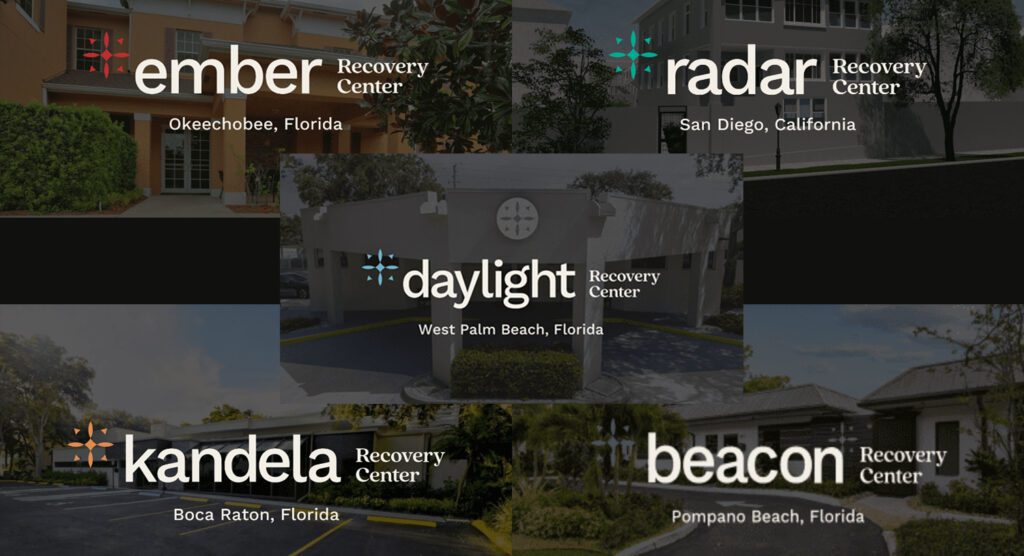Are you struggling with addiction but don’t know where to turn? Addiction can be a difficult and overwhelming experience, but there is hope. The Flyland Recovery Network Guide to Lasting Recovery: Thriving Beyond Addiction provides support and resources for those seeking recovery from substance use disorders. Through partnerships with Daylight Recovery Center, Kandela Recovery Center, Radar Recovery Center and Ember Recovery Center, this comprehensive guide offers valuable information on the road to long-term sobriety that includes education of best practices, strategies for staying sober as well as supportive communities designing tailored services to fit individual needs. Additionally, this guide highlights powerful success stories shared by individuals in active recovery who offer thoughtful insight on their own experiences with addiction so readers can identify struggles they may be facing and gain perspective from supporters within the community. If you are ready to take back control of your life and strive towards lasting rehabilitation it’s time to get started so read on!
Understand the Addiction Cycle and How to Break It
Addiction can be a cruel mistress, pulling us in with promises of joy and relief, only to trap us in a cycle of misery and dependence. Understanding the addiction cycle is a crucial step towards breaking free from its grasp. The cycle typically begins with an emotional trigger that sends us running to our drug of choice for temporary relief. This relief, however, is short-lived and soon gives way to negative consequences, further fueling our addiction. Breaking the cycle can be a daunting task, but it is possible. By identifying our triggers, building a support system, and seeking professional help, we can break free from the addiction cycle and start living life on our own terms.
Identify Triggers and Work to Avoid or Cope with Them
We all have triggers that can evoke strong emotional responses within us, whether it be something as simple as a certain smell or a particular tone of voice. However, it’s important to recognize these triggers and take steps to avoid or cope with them in healthy ways. Perhaps it means avoiding certain people or situations, or finding coping mechanisms such as deep breathing or meditation to help manage the emotions that come up. Whatever the case may be, identifying your triggers and taking proactive steps to manage them can lead to a more peaceful and fulfilling life.
Develop Healthy Coping Mechanisms and Stress-Reducing Practices
In today’s fast-paced world, it’s easy to get overwhelmed by stress and anxiety – whether it’s from work, school, or just everyday life. That’s why it’s more important than ever to develop healthy coping mechanisms and stress-reducing practices. There are countless ways to achieve this – from meditation and yoga to therapy and spending time in nature. The key is finding what works best for you and making it a regular part of your routine. Not only will this help lower your stress levels and improve your mental wellbeing, but it will also give you the tools you need to handle challenging situations in the future. So take some time to explore different stress-reducing practices and develop your own healthy coping mechanisms. Your mind and body will thank you for it.
Cultivate Self-Awareness of Emotions, Behaviors, and Thoughts
As human beings, we experience a wide range of emotions, thoughts, and behaviors throughout our daily lives. While some of these experiences may be positive and uplifting, others may be challenging or even overwhelming. This is why it’s so important to cultivate self-awareness – the ability to recognize and understand our own emotions, behaviors, and thought patterns. By developing a greater sense of self-awareness, we can learn to manage our emotions more effectively, make better decisions, and improve our overall well-being. Whether through mindfulness practices or working with a therapist, taking the time to focus on our internal experiences can help us live more fully and authentically.
Build a Support Network of Family and Friends
Having a strong support network is crucial to leading a healthy and happy life, and family and friends are often the backbone of that network. Whether you need help with a last-minute emergency or just someone to vent to after a long day, having the right people in your corner can make all the difference. Building a support network takes time and effort, but it’s definitely worth it in the end. Start by identifying the people in your life that you trust and feel comfortable with, and then take steps to nurture those relationships. Reach out to them regularly, show an interest in their lives, and be there for them when they need you. In turn, they’ll be there for you when you need them most.
Seek Professional Help from Counselors or Therapists
It’s okay to not have everything figured out on your own. Seeking professional help from counselors or therapists can be the first step towards healing and growth. Sometimes, it can be difficult to talk to friends and family about our deepest struggles, and that’s where seeking professional help comes in. Counselors and therapists are trained to provide a supportive and non-judgmental space for you to express your thoughts and feelings, and work towards finding solutions that are best for you. By prioritizing your mental health and seeking help when needed, you are taking an important step towards living a healthier and happier life.
What we have examined here is just the tip of the iceberg when it comes to understanding addiction and how to find a path to lasting recovery. Each person’s unique journey will look different in terms of the steps they take, the resources they access, and the ways in which they cope with stress and healing throughout their recovery process. With effective mental health care, therapeutic support, self-care practices and a strong social support system, Flyland Recovery Network’s comprehensive Guide to Lasting Recovery provides an essential roadmap for individuals looking to break out of addiction cycles – one thats personalized to their experience. From urban centers like Kandela Recovery Center and Radar Recovery Center that provide a range of services tailored specifically towards substance misuse conditions through to rural facilities like Ember recovery center designed to meet specific needs, there really isn’t any situation you need to go through alone, help is there if you look for it.















